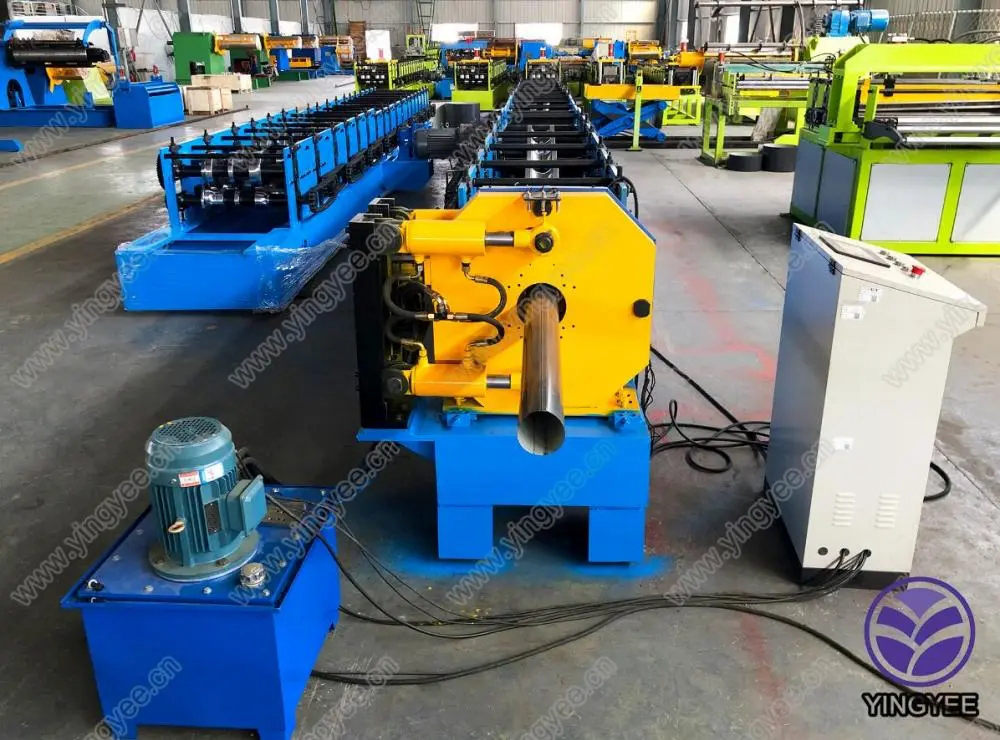
The Tube Mill An Essential Component in Modern Manufacturing
The tube mill, a crucial piece of equipment in the manufacturing industry, plays a significant role in producing a variety of tubular products that are fundamental to numerous applications. From the automotive sector to construction, the versatility and efficiency of tube mills have made them a staple in fabricating high-quality metal tubes and pipes.
What is a Tube Mill?
A tube mill is a system used for manufacturing seamless or welded tubes and pipes from metal sheets or coils. The process generally involves flattening a strip of metal, forming it into a cylindrical shape, and welding the edges together. Depending on the end product's requirements, this process can include various stages such as cutting, forming, welding, and finishing.
Historical Development
The origins of tube mills can be traced back to the late 19th century when industrialization led to advancements in metallurgy and manufacturing processes. With the increasing demand for stronger and lighter materials, engineers and manufacturers sought efficient methods to produce tubular products. Over the decades, technology has advanced significantly, transitioning from manual processes to automated systems that improve precision and productivity.
Types of Tube Mills
There are primarily two types of tube mills continuous tube mills and batch tube mills
.1. Continuous Tube Mills These are used in high-volume production scenarios and typically work with coils of metal. The continuous operation allows for longer lengths of tubes without interruption, significantly increasing throughput.

2. Batch Tube Mills These are more suited for smaller production runs. They allow for flexibility in tube dimensions and can easily adapt to different material types. This type of mill is often used for specialized products or unique projects.
Advantages of Tube Mills
The tube mill's design provides several advantages over traditional manufacturing methods. First, the ability to produce long lengths of tubing minimizes waste material, which is both cost-effective and environmentally friendly. Additionally, tube mills can manufacture a wide range of diameters and wall thicknesses, catering to diverse industry needs.
Moreover, modern tube mills are equipped with advanced automation and control systems, enhancing their operational efficiency. These technological improvements facilitate consistent quality, reduce labor costs, and streamline production processes. Real-time monitoring and feedback systems ensure that any deviations from desired specifications are corrected immediately, thus minimizing errors.
Applications of Tube Mills
Tube mills serve a multitude of industries, underscoring their significance in manufacturing. In the automotive industry, for example, tubular structures are critical for the chassis and exhaust systems. In construction, pipes produced by tube mills are essential for plumbing, scaffolding, and structural applications. Additionally, in the energy sector, these mills contribute to the production of tubing for oil and gas pipelines, ensuring the safe and efficient transportation of these vital resources.
Conclusion
In conclusion, tube mills are a fundamental aspect of modern manufacturing, providing the ability to create high-quality tubular products efficiently and effectively. As technology continues to advance, we can expect further enhancements in the capabilities and efficiencies of tube mills. The significance of these machines in various industries cannot be overstated, as they play a vital role in meeting the material needs of today's fast-paced industrial environment. The evolution of tube mills reflects the broader trends in manufacturing a move towards greater efficiency, flexibility, and sustainability, which ultimately contributes to the ongoing innovations in the field.